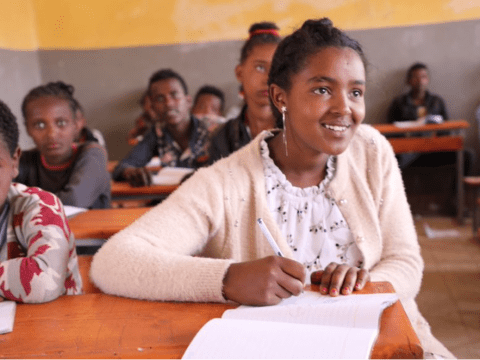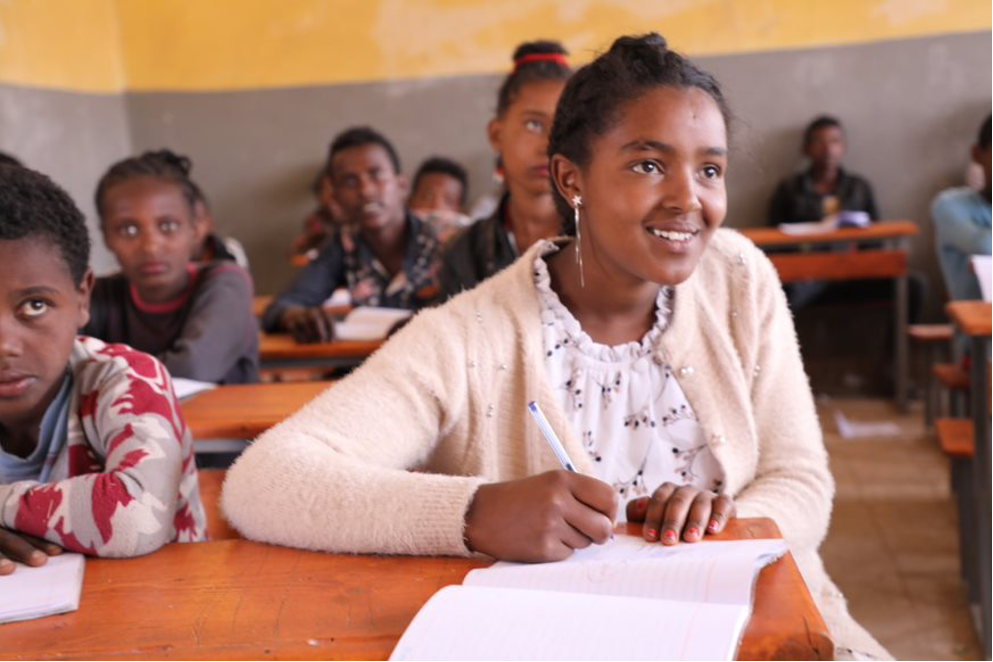Giving children access to quality and safe education is giving them the key to a better future

Imagine the feeling of going to a school, or sending your child to one, that has little to no basic facilities, poor sanitation and hygiene. Dreadful, right? But that has been the reality for several children going to school in Adea Berga district, located in West Showa Zone, 70km west of the capital Addis Ababa. Many schools in this area lacked basic teaching-learning facilities including well-furnished classrooms, proper seats, toilets, potable water, and a library.
“Our school had no combined desks; we used to attend classes sitting on stones and tree logs”, says 14-year-old Hana, a Grade 8 student at one of the primary schools in the area. “We were not properly following our teachers’ lectures. The floor of the classroom was not cemented and the dust particles from the ground were affecting our breathing. The school had no toilet and we had to defecate in the bush and open field.”
These infrastructural challenges posed a risk to children’s well-being and impacted students’ potential and academic outcomes.
Fourteen-year-old Dagne, another Grade 8 student, says: “The school had no library. We were dependent only on our teachers’ lecture notes. It [the school] had no drinking water and we had to bring water from our home. We were not washing our hands after using the toilet.”
After learning about the predicaments of the children in the area –children that the organisation is committed to serving, World Vision has worked addressing the difficulties in the area brick by brick over the past four years. With the aim of contributing to the sustained well-being of children within their families and communities (especially the most vulnerable), and after conducting a thorough baseline assessment report on the Ethiopian education sector, the organisation crafted a programme that focused on improved quality of education and life skills for children and youth.
Through this project, World Vision constructed two primary schools and 14 additional blocks, and renovated 20 classrooms which are now furnished. World Vision also constructed gender-friendly toilets and potable water sources.
“We are now attending school sitting on comfortable chairs!”, explains a now delighted Hana. “The floor of the school is cemented and we no longer experience breathing problems.”

World Vision also distributed solar lights for 15 primary schools and supplied reference books and school materials for 22 primary schools.
“Now, World Vision has supported our school with various title reference books, cemented the floor of the old school and constructed potable water in a close distance to our school. We no longer get thirsty. We have also reference book rich library. We are excited and attending school safely!”, shares an equally happy Dagne.

Adea Berga district has seen measurable achievements in the education sector throughout the programme’s lifecycle and has been on a steady course towards quality education through a decreased dropout rate, increased enrolment and pass rate and reduced average distance travelled to the nearest school from 4km to 1km.
Every child belongs in school, and it takes a world to ensure that!